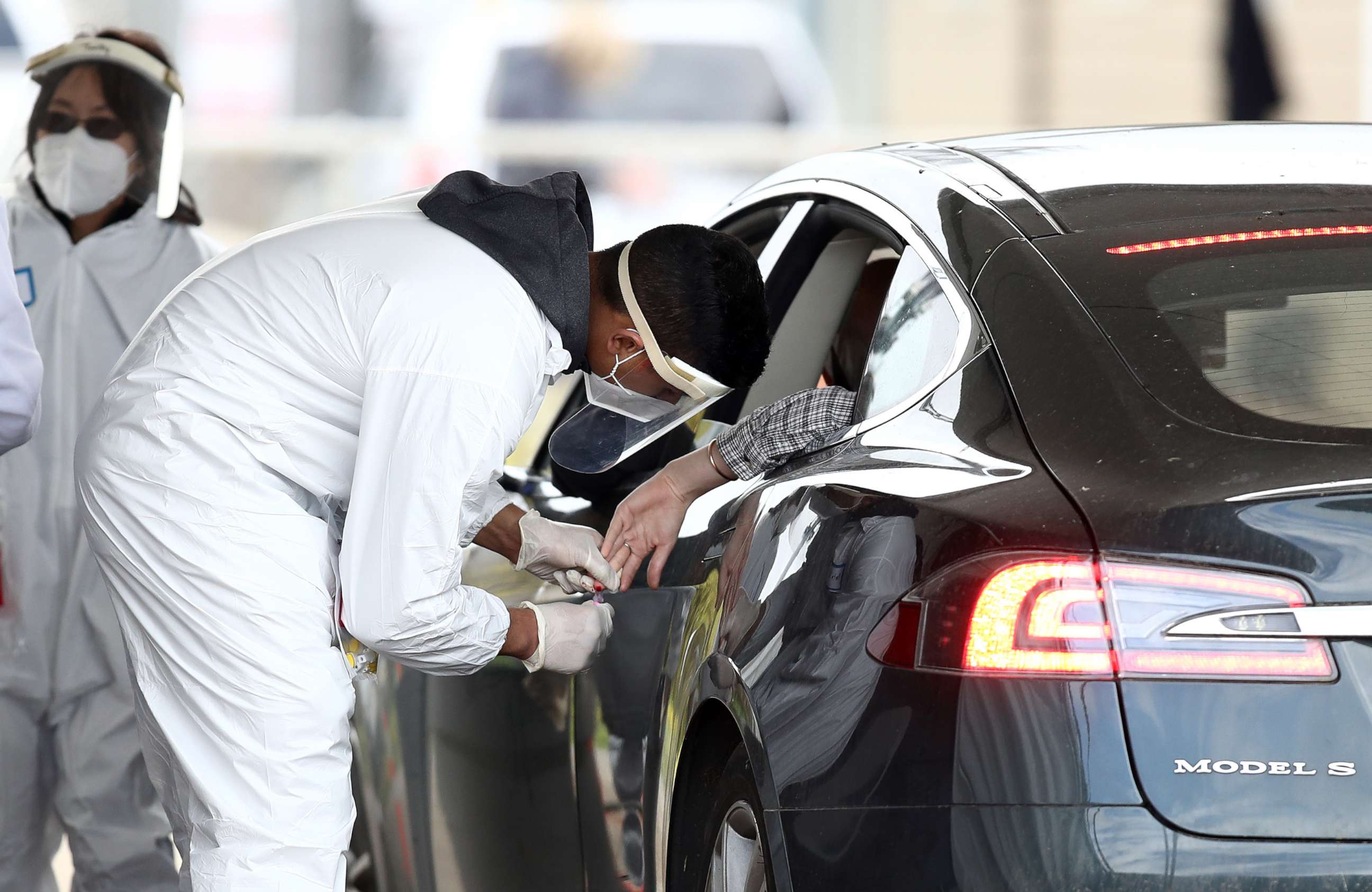Antibody test study results suggest COVID-19 cases likely much higher than reported
The testing is a joint venture by USC and Los Angeles County.
The actual number of infections from COVID-19 in Los Angeles County may be as high as 55 times the current number of confirmed positive cases, according to preliminary results from antibody tests conducted as part of a joint venture between the University of Southern California and the Los Angeles County Department of Public Health.
After testing nearly 900 people, researchers estimate that as many as 442,000 people throughout the county of nearly eight million adults had the virus as of April 9. That's just 5.6% of the population.
"So we have a long way to go," lead investigator Neeraj Sood, a USC professor of public policy, told ABC News on Monday. "We're still early in the epidemic and more people will likely get infected. "
The results were from the venture's first round of testing. The study by USC researchers and the public health department is ongoing and will test thousands more in the coming weeks.
"Based on results of the first round of testing, the research team estimates that approximately 4.1% of the county’s adult population has antibody to the virus. Adjusting this estimate for statistical margin of error implies about 2.8% to 5.6% of the county’s adult population has antibody to the virus, which translates to approximately 221,000 to 442,000 adults in the county who have had the infection," the study's researchers said in a news release.

Sood cautioned that while the antibody testing had likely uncovered hidden cases of the coronavirus, "these tests are not good for telling if someone has immunity."
Questions remain about whether antibodies for COVID-19 in people who've survived the illness provide immunity.
There were 7,994 confirmed cases of COVID-19 reported to the county by the time of the study in early April.
According to the study, 6% of adult men had been infected while 2% of women had been infected in the county. Researchers said they could not determine at this time whether the difference was by chance or statistically significant.
The study also showed that 7% of African Americans in the county had been infected, 6% of whites had been infected, 4.2% of Asians had been infected and 2.5% of Latinos had been infected.
The breakdown of those infected by age was 2.4% of adults ages 18 to 34 compared to 5.6% of adults ages 35 to 54 and 4.3% of adults 55 and older.
"These results indicate that many persons may have been unknowingly infected and at risk of transmitting the virus to others," Dr. Barbara Ferrer, director of the L.A. County Department of Public Health, said in the news release.
Ferrer said the findings underscored "the importance of expanded polymerase chain reaction (PCR) testing to diagnose those with infection so they can be isolated and quarantined, while also maintaining the broad social distancing interventions."
She added that the data suggests the county's mortality rate is around 0.1% or 0.2% of true infections, but added that this was no consolation to the friends and families of the people who have died. The number of deaths related to COVID-19 in the county has surpassed 600.
Researchers said that they asked the test subjects whether they had experienced COVID-19 symptoms in the last few months and many said they had. However, it's unclear how much of their symptoms were actually due to other viruses, such as the flu, that cause similar symptoms.
The USC study also cautioned that its test results had not yet been peer reviewed by other scientists.
The test subjects were found through a market research company and researchers used a rapid antibody blood test for the study.
This report was featured in the Tuesday, April 21, 2020, episode of “Start Here,” ABC News’ daily news podcast.
"Start Here" offers a straightforward look at the day's top stories in 20 minutes. Listen for free every weekday on Apple Podcasts, Google Podcasts, Spotify, the ABC News app or wherever you get your podcasts.
What to know about the coronavirus:
- How it started and how to protect yourself: Coronavirus explained
- What to do if you have symptoms: Coronavirus symptoms
- Tracking the spread in the U.S. and worldwide: Coronavirus map
Tune into ABC at 1 p.m. ET and ABC News Live at 4 p.m. ET every weekday for special coverage of the novel coronavirus with the full ABC News team, including the latest news, context and analysis.



